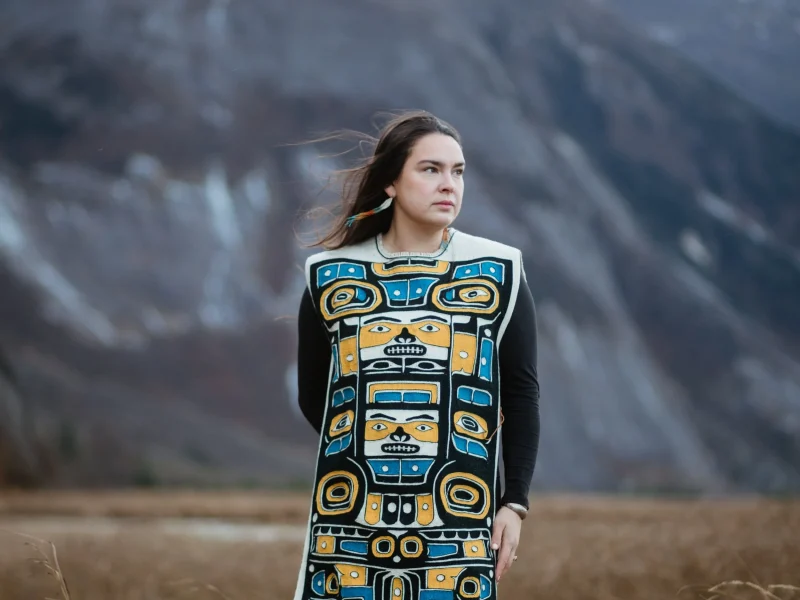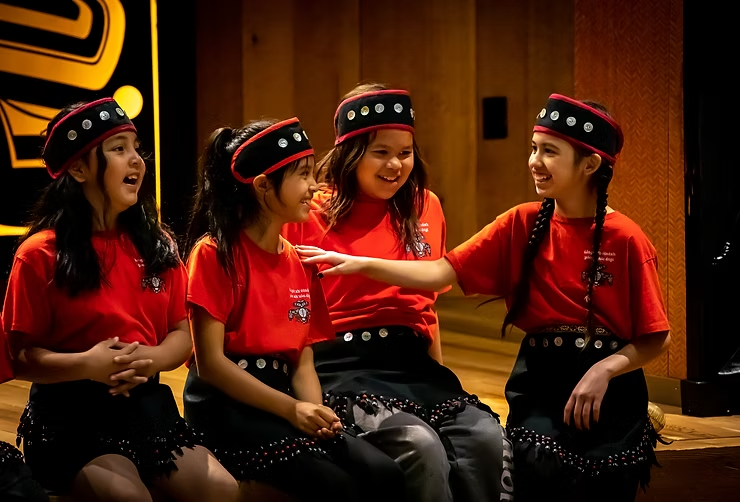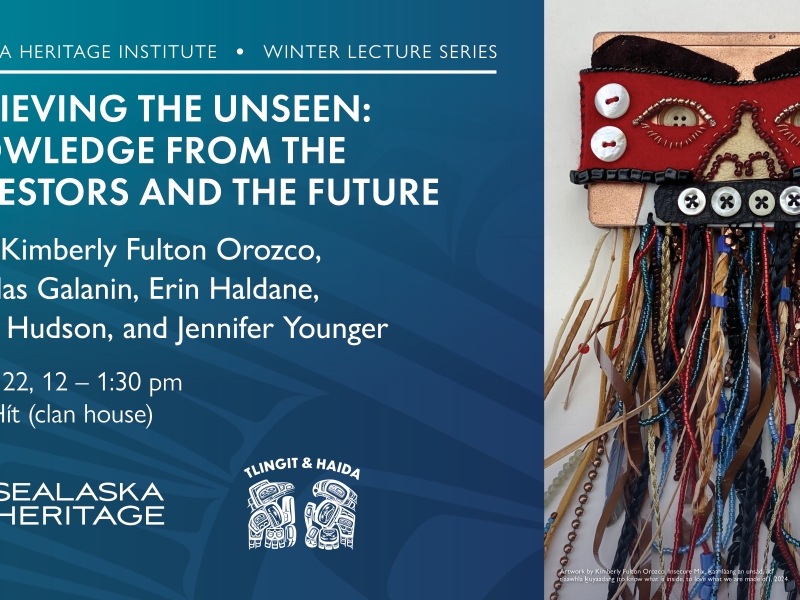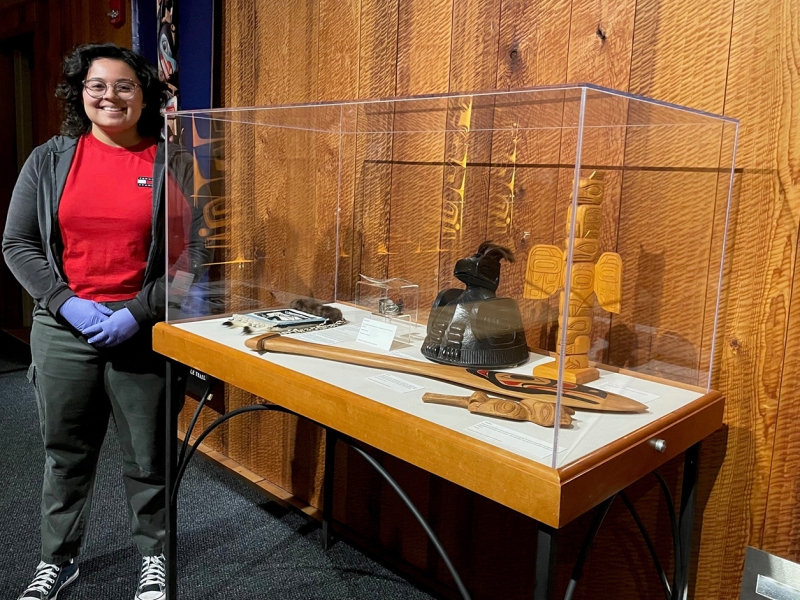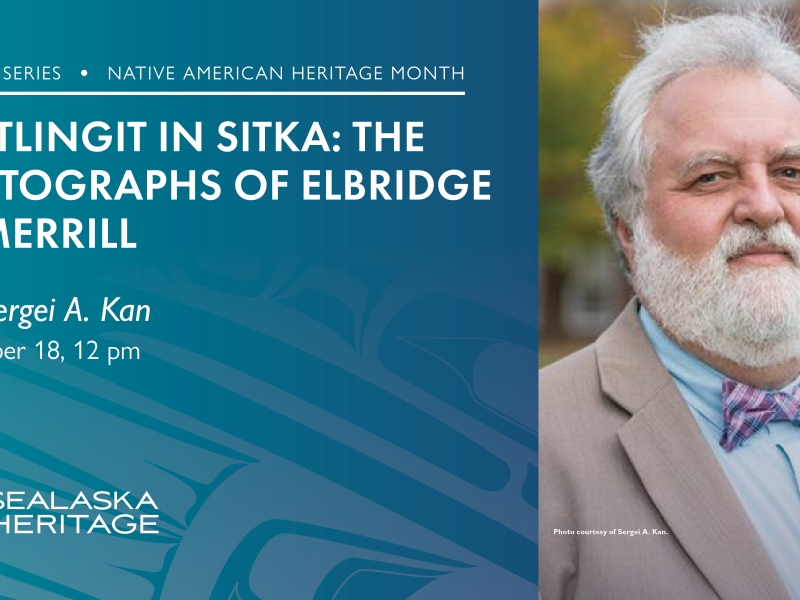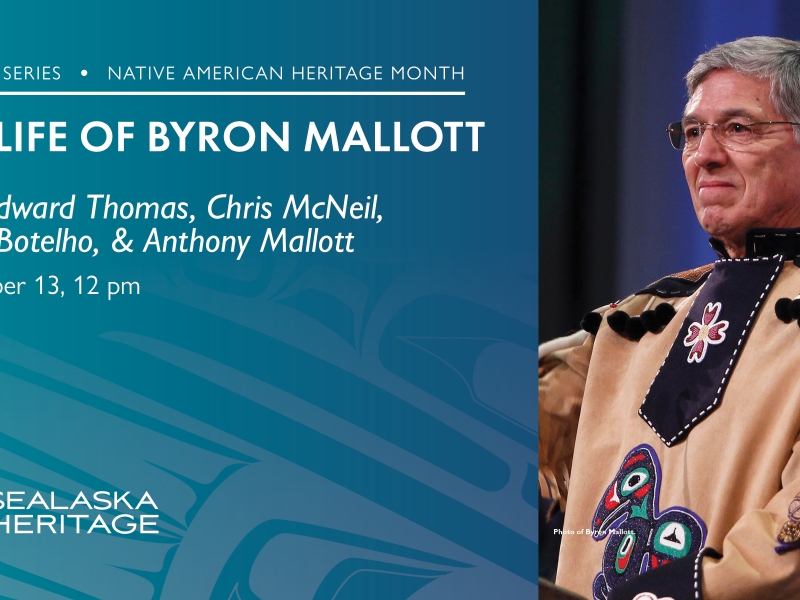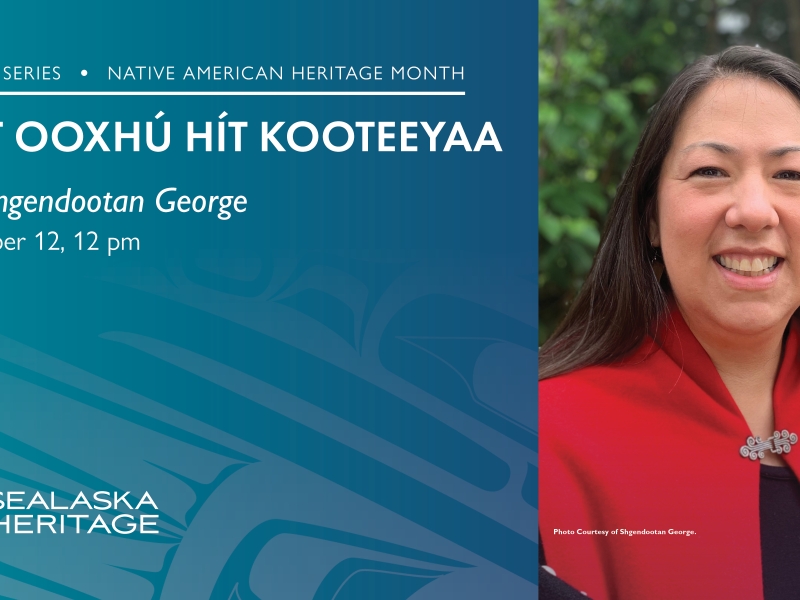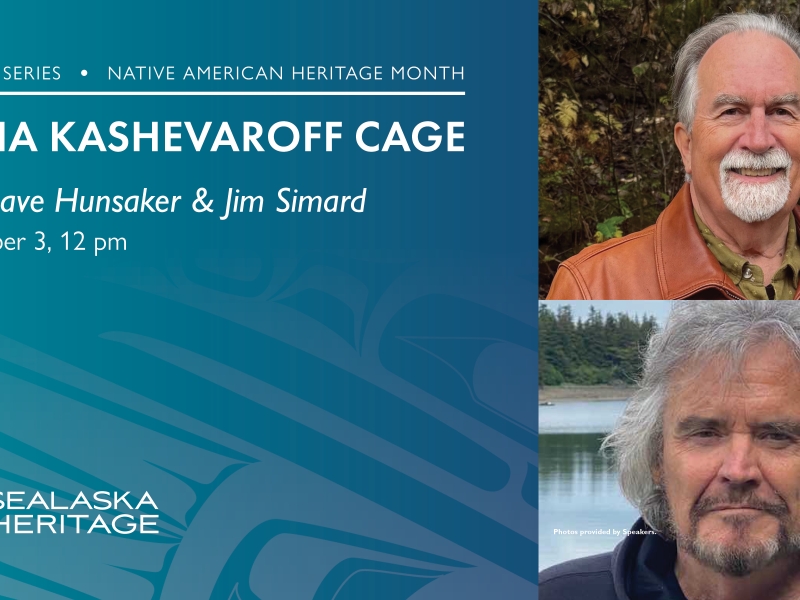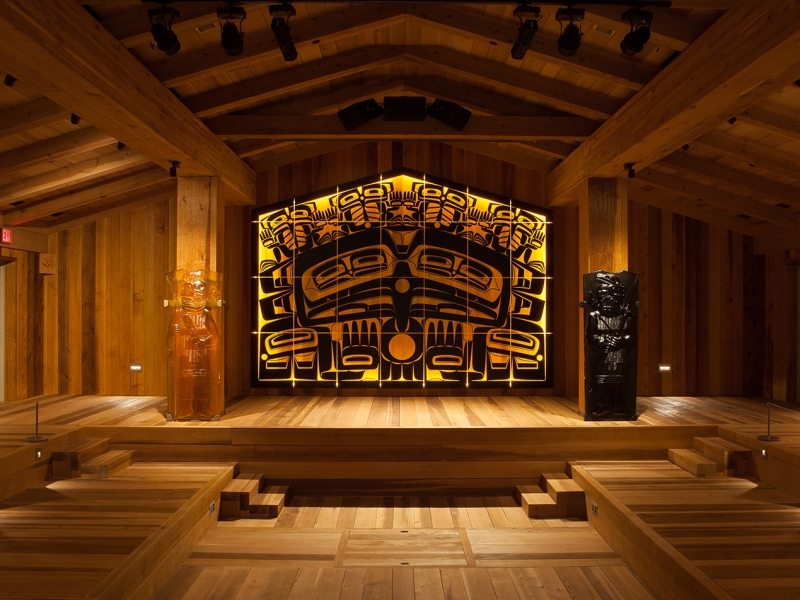SHI selects weaver for historic mountain goat Chilkat robe project
Sealaska Heritage Institute Press Release
SHI selects weaver for historic mountain goat Chilkat robe project
Sydney ...
Registration open for 2026 Traditional Games
Sealaska Heritage Institute Press Release
Registration open for 2026 Traditional Games
Athletes, volunteers and games officials ...
SHI launches intermediate Tlingit language course
Sealaska Heritage Institute Press Release
SHI launches intermediate Tlingit language course
New online course builds on ...
Artist panel to explore ancestral knowledge in contemporary Indigenous art
Sealaska Heritage Institute Press Release
Artist panel to explore ancestral knowledge in contemporary Indigenous art
Panel ...
SHI offering museum, art internships in Alaska, New Mexico
Sealaska Heritage Institute Press Release
SHI offering museum, art internships in Alaska, New Mexico
Candidates will ...
SHI lecture to showcase historical Sitka Tlingit photographs
Sealaska Heritage Institute Press Release
SHI lecture to showcase historical Sitka Tlingit photographs
Anthropologist to discuss ...
SHI lecture to honor legacy of Native leader
Sealaska Heritage Institute Press Release
SHI lecture to honor legacy of Native leader
Panel discussion to ...
SHI lecture to explore Killer Whale totem pole raising
Sealaska Heritage Institute Press Release
SHI lecture to explore Killer Whale totem pole raising
Angoon cultural ...
SHI lecture to uncover story of Alaska Native Surrealist
Sealaska Heritage Institute Press Release
SHI lecture to uncover story of Alaska Native Surrealist
Presentation examines ...
SHI to sponsor 2025 lecture series for Native American Heritage Month
Sealaska Heritage Institute Press Release
SHI to sponsor 2025 lecture series for Native American Heritage ...
